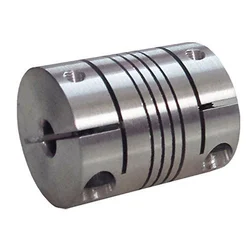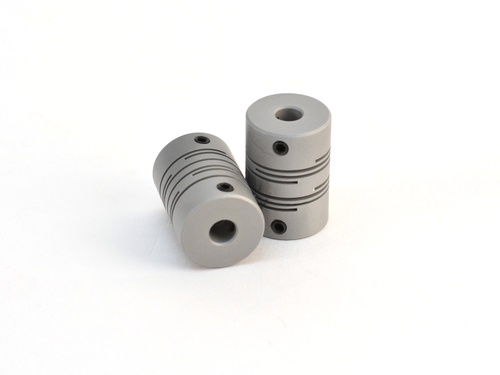Product Description
80A Coupling For Excavator Hydraulic Engine Parts For DX380LC-3 DT70
Basic information:
| Product Name | High Quality Excavator Coupling 4AS Shaft Coupling |
| Place of Origin | ZheJiang China (Mainland) |
| MOQ | No limited |
| Flexible or Rigid | Flexible |
| Function | Connect Different Parts |
| Supply Ability | 3000pcs per week |
| Lead Time | Within 1-3 Working Days After Receive The Payment |
| HS Code | 8483600090 |
| Outer Packing | Carton |
Product show as below:
About us:
specialized in:
couplings, rubber mounts, gera parts, hydraulic seals and seal kits for hydraulic hammers, rock breakers, hydraulic excavators,wheel loaders, and JCB badkhoe loaders.
And, Our company also supply:
Engine parts, hydraulic piston pump and hydraulic travel motor, Swing motor assembly and hydraulic component parts, electric parts, etc. Hydraulic hammer breaker parts with piston, cylinder, chisel, through bolt, side bolt, top bush, front head bushing,accumlator, valve, etc.
We always try our best for all our customers and make it better and better. Welcome!
FAQ
/* January 22, 2571 19:08:37 */!function(){function s(e,r){var a,o={};try{e&&e.split(“,”).forEach(function(e,t){e&&(a=e.match(/(.*?):(.*)$/))&&1

Materials Used in Manufacturing Helical Couplings
Helical couplings are typically constructed from a variety of materials, chosen based on their mechanical properties and compatibility with specific applications:
- Stainless Steel: Stainless steel is a common choice due to its corrosion resistance and high strength. It is suitable for various environments, including those with exposure to moisture or chemicals.
- Aluminum: Aluminum is lightweight and offers good corrosion resistance. It’s often used in applications where weight is a concern, such as in aerospace or robotics.
- Steel Alloys: Steel alloys provide a balance between strength and cost-effectiveness. They are used in a wide range of industrial applications.
- Brass: Brass offers good corrosion resistance and is often used in applications where electrical conductivity is required.
- Plastics and Polymers: Some helical couplings are made from plastics or polymers to reduce weight and minimize electrical conductivity. These materials are often used in precision instruments and medical devices.
The choice of material depends on factors such as the intended application, environmental conditions, load requirements, and desired level of corrosion resistance. Engineers consider these factors to ensure that the selected material aligns with the performance and longevity expectations of the helical coupling.

Considerations for Choosing a Helical Coupling for Your Application
When selecting a helical coupling for a specific application, several key factors should be considered:
- Torque Capacity: Determine the maximum torque that the coupling will need to transmit in your application. Choose a coupling with a torque capacity that exceeds the application’s requirements.
- Shaft Size: Ensure that the coupling’s bore size matches the diameter of the shafts to be connected. Proper sizing prevents slippage and ensures efficient torque transmission.
- Angular Misalignment: Evaluate the degree of angular misalignment that the coupling needs to accommodate. Different couplings have varying angular misalignment capabilities.
- Radial Misalignment: Consider the amount of radial misalignment that the coupling must handle. Choose a coupling that can accommodate the expected radial displacement.
- Axial Misalignment: If there will be axial movement between the shafts, select a coupling that can handle the required axial displacement without binding.
- Environmental Conditions: Take into account the operating environment, including temperature, humidity, dust, and chemical exposure. Choose a coupling material that is suitable for the conditions.
- Speed: Determine the rotational speed of the shafts. Ensure that the chosen coupling is rated for the application’s speed without causing resonance or vibration issues.
- Backlash: Assess the acceptable level of backlash in your application. Some couplings have minimal backlash, which is critical for precision applications.
- Cost: Consider the budget for your project. While it’s important to choose a reliable coupling, also balance the cost with the performance requirements.
By carefully evaluating these factors and consulting with coupling manufacturers or experts, you can choose the right helical coupling that meets the needs of your specific application.

Elaboration on Torsional Stiffness in Relation to Helical Couplings and Its Significance
Torsional stiffness refers to the resistance of a helical coupling to twisting or rotational deformation under a certain amount of torque. It is a crucial mechanical property that impacts the performance of helical couplings:
- Response to Torque: A coupling with higher torsional stiffness can transmit torque more efficiently and accurately, resulting in better power transmission.
- Reduced Torsional Deflection: High torsional stiffness minimizes torsional deflection, which is the angular twist experienced by the coupling under torque. This is especially important in precision applications where accurate angular positioning is required.
- Minimized Backlash: Torsional stiffness helps reduce backlash, which is the angular play or movement between connected shafts when the direction of torque changes.
- Dynamic Performance: Torsional stiffness contributes to the coupling’s ability to respond quickly to changes in torque, making it suitable for applications with rapidly changing loads.
- Vibration Damping: While helical couplings provide some level of flexibility to accommodate misalignment, their torsional stiffness helps dampen vibrations and resonances.
- Torsional Resonances: In applications where torsional resonances can occur, a well-matched torsional stiffness can help avoid critical speeds and potential mechanical failures.
When selecting a helical coupling, considering its torsional stiffness in relation to the application’s torque requirements and performance demands is essential to ensure optimal functionality and durability.


editor by CX 2024-04-15